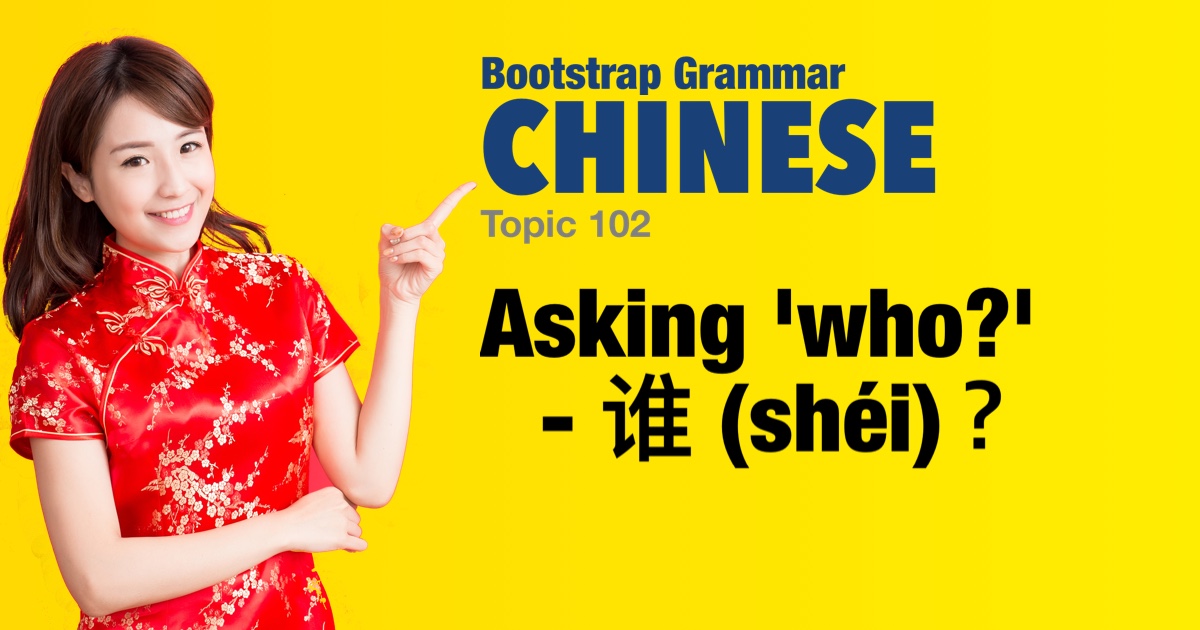Chinese grammar - Asking 'who?' - 谁 (shéi)? |
|||
|
|||
Asking 'who' in Chinese is straightforward - simply use the word 谁 (shéi). It can also mean 'whoever' or 'anyone'. Additionally, the possessive marker 的 can be added to say 'whose' as in 谁的 (shéide). |
| Examples: | |
|
这是谁?
zhè shì shéi? Who is this?
|
|
|
你是谁?
nǐ shì shéi? Who are you? |
|
|
谁来?
shéi lái? Who is coming? |
|
|
谁在门口?
shéi zài ménkǒu? Who is at the door/doorway? |
|
|
谁想喝咖啡?
shéi xiǎng hē kāfēi? Who wants to drink coffee? |
|
|
谁会说中文?
shéi huì shuō zhōngwén? Who can speak Chinese? |
|
|
谁用我的电脑?
shéi yòng wǒ de diànnǎo? Who is using my computer? |
|
|
谁知道答案?
shéi zhīdào dá'àn? Who knows the answer?
|
|
|
昨天谁来了?
zuótiān shéi lái le? Who came yesterday? |
|
|
你昨天见了谁?
nǐ zuótiān jiàn le shéi? Who did you see yesterday? |
|
|
谁吃了我的蛋糕?
shéi chī le wǒ de dàngāo? Who ate my cake? |
|
|
谁等我?
shéi děng wǒ? Who was waiting for me? |
|
|
上个星期谁去了北京?
shàng ge xīngqī shéi qù le běijīng? Who went to Beijing last week? |
|
|
谁读完了这本书?
shéi dúwán le zhè běn shū? Who finished reading the book?
|
|
|
谁没做完作业?
shéi méi zuòwán zuòyè? Who has not finished the homework? |
|
|
谁的电话刚刚响了?
shéi de diànhuà gānggāng xiǎng le? Whose phone rang just now? |
|
|
这本书是谁的?
zhè běn shū shì shéi de? Whose book is this? |
|
 |
|



